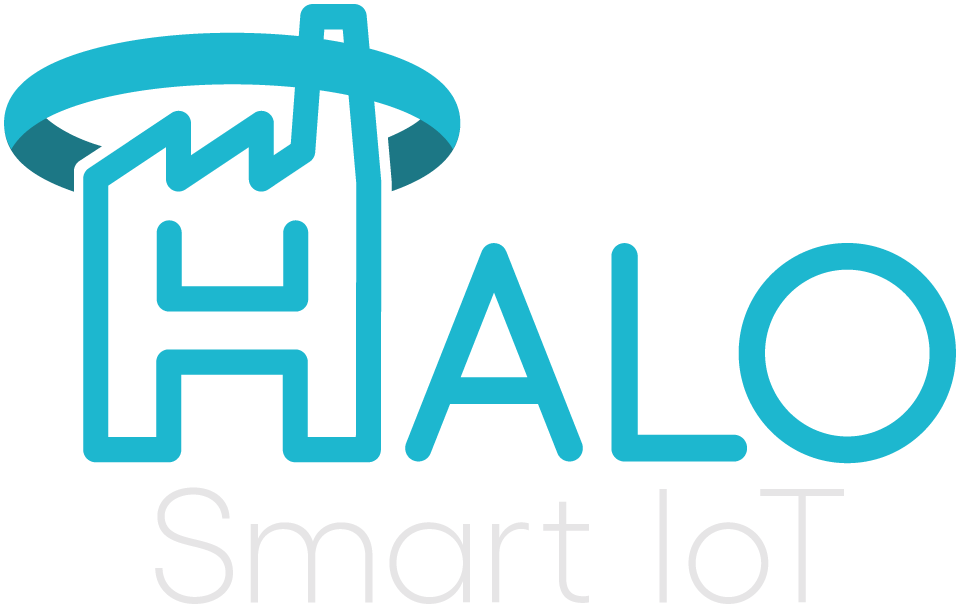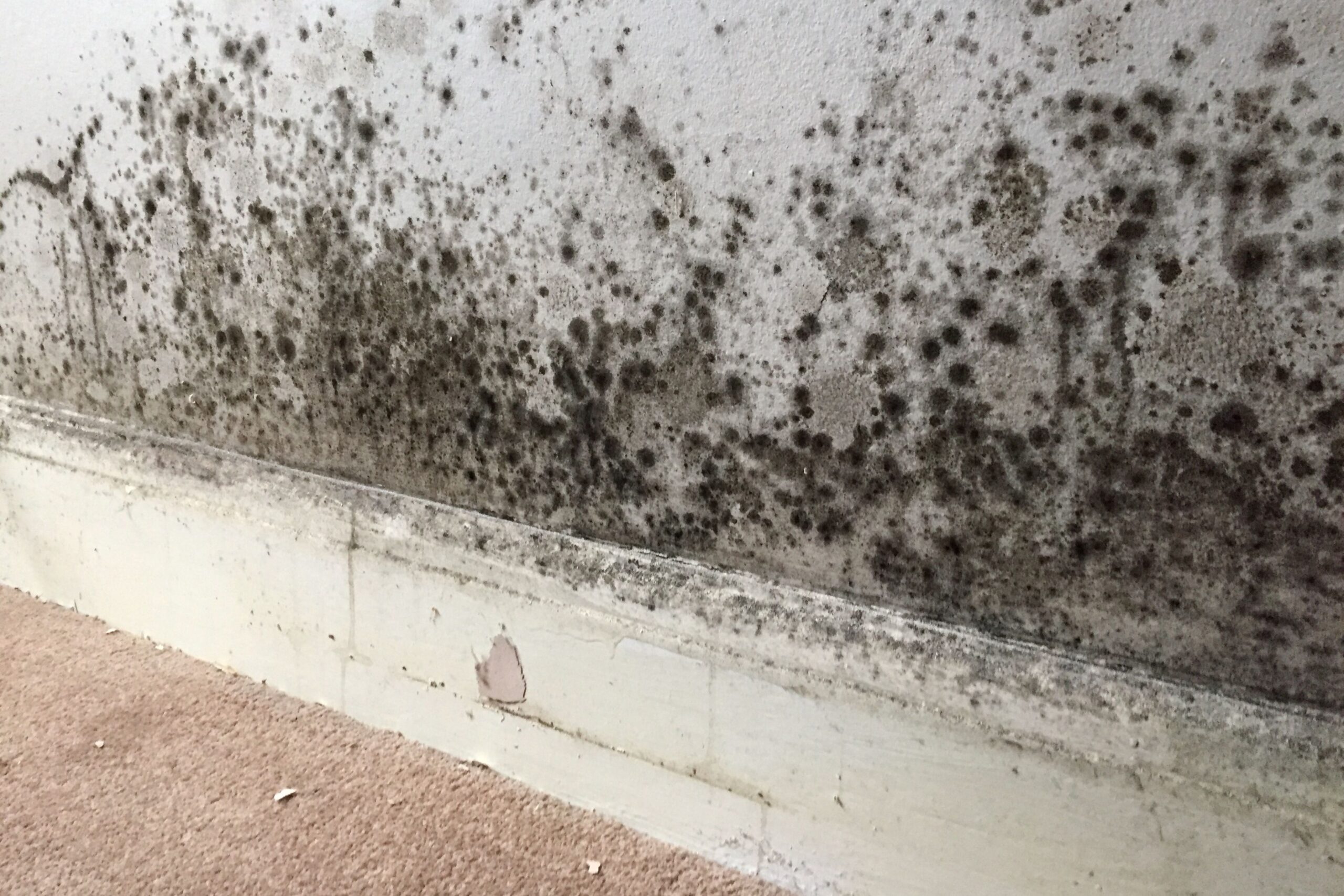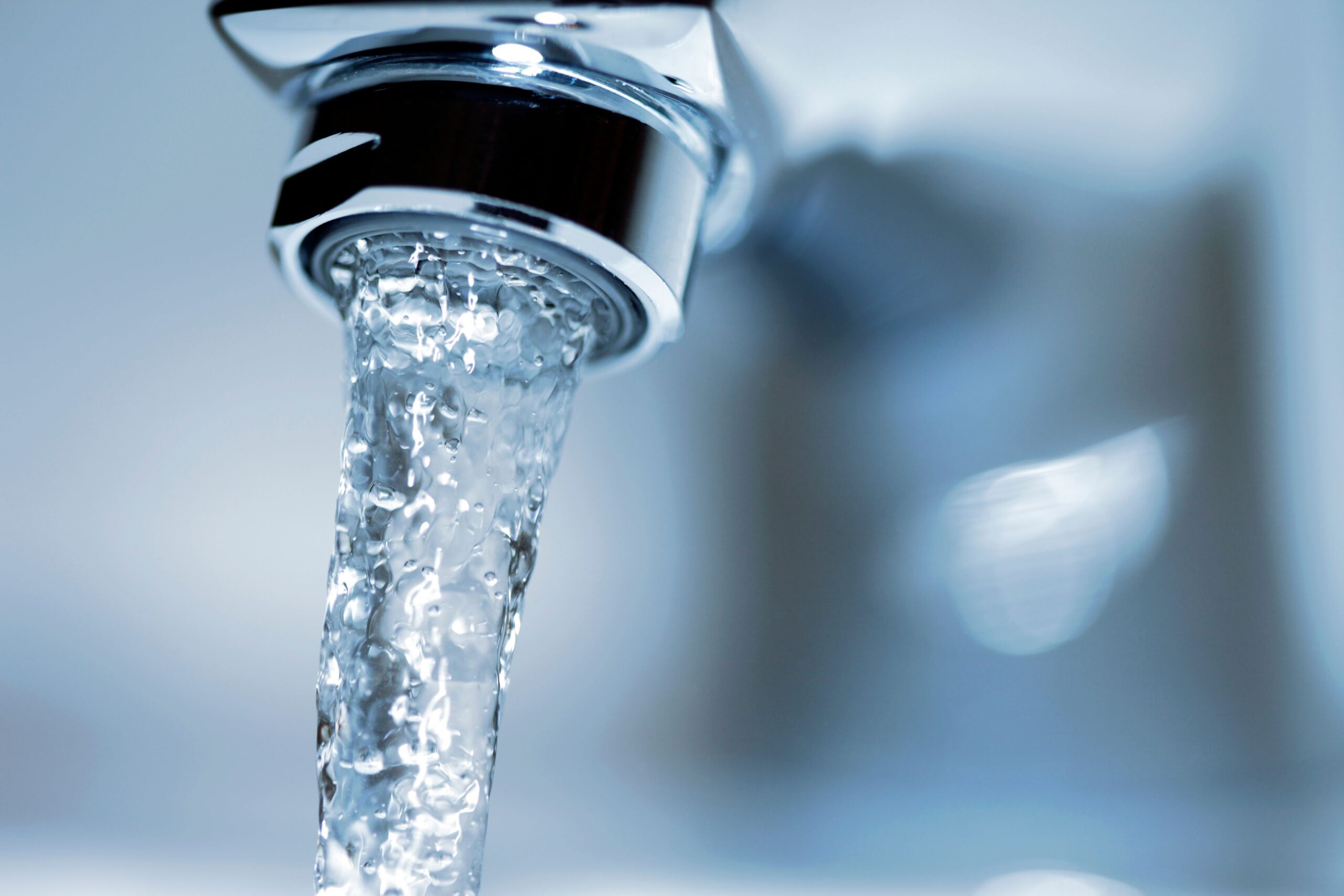Tenant satisfaction is more important than ever for property managers and landlords. Satisfied tenants lead to higher occupancy rates, better retention, and positive referrals. IoT (Internet of Things) technology, specifically real-time monitoring, offers an innovative solution for enhancing tenant satisfaction by improving comfort, safety, and overall living conditions in residential properties. Here’s how real-time IoT monitoring can boost tenant satisfaction and create a healthier, more comfortable living environment. Understanding IoT and Real-Time Environmental Monitoring IoT enables devices to collect and transmit data in real-time, providing actionable insights into a property’s environment. Real-time environmental monitoring uses IoT sensors placed strategically throughout the building to track various factors that impact tenant comfort and safety, such as temperature, humidity, air quality, and energy consumption. These sensors communicate data to a centralised platform where property managers can analyse trends and address issues proactively. 1. Enhancing Indoor Comfort and Air Quality One of the most significant ways IoT monitoring boosts tenant satisfaction is by ensuring optimal indoor comfort. Temperature, humidity, and air quality are three critical factors influencing a tenant’s perception of their home. With IoT monitoring, property managers can respond in real-time to maintain ideal comfort levels, reducing tenant complaints and fostering a healthier living environment. 2. Strengthening Tenant Safety with Proactive Hazard Detection Tenant safety is a top priority for property managers, and IoT environmental monitoring can play a crucial role in identifying and mitigating potential hazards before they become significant issues. 3. Enhancing Energy Efficiency and Cost Savings In addition to comfort and safety, IoT monitoring can also support energy-efficient practices within residential properties. Sensors that monitor energy consumption, lighting, and heating systems can identify opportunities to reduce energy usage, benefiting both tenants and property managers. For tenants, this often translates to lower utility bills, which is a significant factor in overall satisfaction. For property managers, the ability to make data-driven decisions can lead to considerable cost savings and a more sustainable property, appealing to environmentally conscious tenants. 4. Transparent Communication and Trust Building IoT solutions that provide real-time monitoring also enhance transparency between tenants and property managers. For example, tenants can be given access to a tenant portal where they can view real-time data on air quality, energy consumption, and any maintenance work. This transparency builds trust, as tenants are reassured that their comfort and safety are priorities. Furthermore, tenants are more likely to feel valued and satisfied when they see that proactive measures are in place to maintain their living environment. 5. Boosting Tenant Satisfaction with Seamless Issue Resolution One of the most common sources of tenant dissatisfaction is delayed response to maintenance issues. IoT-enabled real-time monitoring changes the game by enabling proactive maintenance, often addressing issues before tenants are even aware of them. For example, if IoT sensors detect an anomaly in water pressure or a potential heating system failure, maintenance teams can be notified immediately to resolve the issue before it escalates, minimising disruptions and enhancing tenant satisfaction. Key Takeaways: Why IoT Monitoring Is the Future of Tenant Satisfaction In a competitive real estate market, IoT solutions are an invaluable tool for elevating tenant satisfaction. Real-time environmental monitoring enables property managers to create healthier, safer, and more comfortable living environments, fostering a sense of trust and satisfaction among tenants. Proactive issue detection and the ability to address comfort concerns swiftly improve tenant retention, increase occupancy rates, and ultimately contribute to a successful property management strategy. With IoT solutions such as Halo Smart IoT by TBT Group, residential property managers can seamlessly integrate these advanced monitoring systems into their properties, ensuring that tenants’ needs are met proactively, not reactively. Investing in real-time environmental monitoring is more than a technological upgrade—it’s a commitment to providing tenants with the highest standards of care and comfort in their homes.
Halo Smart IoT Mould Detection: Your Solution for Healthier, Safer Living Spaces
Mould isn’t just a nuisance—it’s a serious health risk and a hidden danger that can lead to costly property damage if left unchecked. For property managers, keeping indoor environments safe and mould-free can be a challenging task. That’s where the Halo Smart IoT Mould Detection Bundle comes into play, offering a revolutionary approach to mould prevention through early detection, smart data, and real-time alerts. Why Mould Detection Matters in Residential Properties Mould can grow in hidden areas like walls, attics, or bathrooms, where humidity levels are high, often going unnoticed until it becomes a severe problem. It’s not just unsightly; it also releases allergens and irritants that pose health risks to residents, particularly those with respiratory issues or compromised immune systems. Beyond health concerns, untreated mould can weaken structures, causing property damage that’s both expensive and time-consuming to fix. For property managers, detecting and mitigating mould proactively isn’t just an option—it’s a necessity. Traditional approaches to mould management can be costly and reactive, often focusing on remediation rather than prevention. This is where Halo Smart IoT makes a game-changing difference. How the Halo Smart IoT Mould Detection Bundle Works The Halo Smart IoT Mould Detection Bundle leverages advanced IoT technology to keep an eye on environmental conditions across residential buildings. Through a network of smart sensors, the system continuously monitors critical factors like humidity and temperature that contribute to mould growth. Here’s how it works: Key Benefits of Halo’s Mould Detection Solution 1. Proactive Health Protection: Early detection means residents are exposed to fewer health risks. By keeping humidity and temperature in check and preventing mould before it starts, property managers create a healthier indoor environment, reducing allergy and asthma triggers and boosting overall resident satisfaction. 2. Cost Savings on Repairs and Maintenance: Catching mould risks early saves on significant repair costs down the road. Preventing mould growth also helps maintain the property’s structural integrity, protecting its value and reducing long-term maintenance expenses. 3. Simplified Compliance Reporting: For property managers, proving compliance with health and safety standards is simplified with Halo’s data tracking and reporting capabilities. Easy-to-generate reports offer valuable documentation for audits and inspections. 4. Centralised Platform for Property Management: Halo’s intuitive platform allows managers to monitor conditions across multiple buildings, all from a single dashboard. Whether managing one property or an entire portfolio, you can make decisions backed by real-time data. 5. Scalable and Secure Solution: Halo is designed to grow with your needs, allowing you to add more sensors and integrate them across larger property networks. With secure data handling, the platform ensures compliance with data privacy standards. Going Beyond Detection with Actionable Insights Unlike traditional mould detection tools that may only notify you after mould has already formed, Halo Smart IoT takes a proactive approach. The platform’s insights go beyond alerts, offering practical, data-driven guidance to help you take preventative actions. This data becomes a valuable asset, enabling managers to adjust environmental controls, such as HVAC systems, to reduce moisture levels proactively. Healthier Homes, Peace of Mind The Halo Smart IoT Mould Detection Bundle equips property managers with the tools to stay ahead of potential mould issues, providing peace of mind for residents and reducing long-term costs for building owners. Investing in early mould detection and prevention is not only a smart choice for property value and maintenance budgets but also an essential step in creating healthier, happier living spaces. In residential property management, staying proactive is the key to long-term success. With Halo’s advanced IoT technology, you can ensure that each property remains a safe, comfortable, and desirable place to live. Ready to bring Halo Smart IoT Mould Detection into your properties? Contact us today to learn how our solution can keep your buildings mould-free, healthy, and sustainable for years to come.
Scalable Solutions for Property Management: Harnessing the Power of Halo Smart IoT
Flexibility and scalability are crucial in the housing industry. Property portfolios are constantly evolving, with new units, changing regulations, and the demand for more efficient, tenant-friendly solutions. The Halo Smart IoT platform offers a scalable, flexible solution for property managers, allowing them to expand capabilities seamlessly and add specialised hardware as needs grow. Let’s explore how Halo’s adaptability benefits property managers, making it the ideal choice for both current operations and future expansion. Property Management 1. Start Small, Scale Smart: Flexibility at Every Level One of the standout features of the Halo Smart IoT platform is its flexibility. Property managers can start with essential features and build out their IoT ecosystem over time. This modular approach allows them to implement only what’s needed at the moment, avoiding unnecessary upfront costs, while still providing a clear path for future upgrades. As properties grow or tenants’ expectations change, managers can easily integrate new devices and features without overhauling the entire system. For example, a property manager might initially focus on environmental monitoring to comply with regulatory standards, then gradually add features like energy management or potential accident monitoring as operational needs evolve. With Halo Smart IoT, each of these solutions can be added seamlessly, with everything working together under one unified platform. 2. Easy Integration with Specialised Hardware The Halo Smart IoT platform is designed to accommodate a wide array of specialised IoT devices. From smart thermostats and environmental sensors to accident monitoring sensors and assistance buttons, property managers can easily add hardware that suits their unique needs. This ability to integrate specialised devices means managers can customise the IoT setup for each property, adapting to specific layouts, tenant requirements, and local compliance standards. Moreover, as new IoT devices become available or specific needs arise, property managers aren’t limited by their existing setup. Halo’s open architecture supports a growing range of devices, so managers can integrate emerging technology to address evolving challenges—whether it’s improving security with enhanced surveillance or boosting energy efficiency with advanced sensors. 3. Proactive Monitoring for Better Decision-Making Scalability in property management also means having access to data that supports proactive decision-making. The Halo Smart IoT platform provides a centralised dashboard that captures real-time data from all connected devices. This comprehensive view allows property managers to monitor conditions across multiple units or buildings, track trends, and identify issues before they become costly problems. Imagine monitoring air quality, temperature, and humidity in each unit. With Halo, property managers can pinpoint irregularities early, schedule maintenance at optimal times, and avoid disruptions for tenants. Proactive monitoring means fewer reactive responses, saving time and money while enhancing the tenant experience. As the property portfolio grows, the platform scales to accommodate additional buildings and devices, providing a unified view of the entire estate. 4. Cost-Effective Compliance and Energy Management Energy efficiency and compliance are constant concerns in property management, especially as energy costs rise and regulations evolve. Halo Smart IoT’s scalable platform makes it easy for managers to adopt energy-saving solutions without incurring overwhelming costs. Property managers can implement energy monitoring and control features incrementally, giving them the freedom to target high-impact areas first, such as HVAC and lighting, before scaling up to include other systems. Property managers can easily track compliance metrics and generate reports as needed, reducing the administrative burden and avoiding potential fines. As compliance requirements change, Halo’s platform can adapt, allowing property managers to meet new standards without complex modifications to their existing setup. 5. Enhanced Tenant Satisfaction and Retention Tenant expectations are higher than ever, and properties that offer smart, connected amenities can stand out in a competitive market. The Halo Smart IoT platform helps property managers provide value to tenants through improved comfort, security, and convenience. With customisable environmental settings that enhance comfort, the platform supports an enhanced tenant experience that leads to better retention rates. Moreover, the flexibility to add new features based on tenant feedback means property managers can quickly adapt to meet emerging needs. As more tenants seek connected living spaces, the Halo platform allows property managers to offer a progressively modern experience, making properties more appealing to tech-savvy tenants and fostering long-term loyalty. 6. Future-Proofing for Long-Term Growth Perhaps one of the most significant advantages of the Halo Smart IoT platform is its ability to future-proof property management operations. With a rapidly evolving landscape of IoT innovations, managers need a platform that won’t be outpaced by new technologies. Halo’s scalable, adaptable design means that as new devices, regulations, or tenant needs emerge, property managers are well-equipped to integrate these changes smoothly. Future-proofing ensures that property managers can continue to deliver top-quality services without needing major overhauls to their existing IoT infrastructure. This scalability not only protects initial investments but also helps properties maintain a competitive edge in the market as they expand and modernise. Conclusion The Halo Smart IoT platform empowers property managers with a scalable, flexible solution tailored to property management needs. With seamless hardware integration, centralized data insights, and simplified compliance, Halo supports efficient operations and superior tenant experiences. Start small, scale smart, and build a future-ready property management ecosystem with Halo. For property managers seeking a platform that grows with their portfolio and supports an adaptable, tenant-focused approach, Halo Smart IoT is the ideal solution. Embrace scalable solutions and unlock the full potential of your properties with Halo!
Streamlined Water Usage Monitoring for Sustainability in Residential Properties
In the age of smart technology and environmental consciousness, sustainability in property management has become a priority for landlords, tenants, and property managers alike. One critical aspect of sustainable management is water usage monitoring. By implementing IoT solutions for real-time water tracking, residential property managers can detect potential leaks and promote water conservation among tenants, ultimately reducing costs and supporting sustainability goals. Why Water Usage Monitoring Matters in Residential Properties Water is one of our most precious resources, yet in residential settings, it’s often overlooked or undervalued. However, managing water efficiently benefits everyone involved. From an environmental perspective, reduced water waste means a smaller carbon footprint. Economically, water Usage monitoring helps property managers lower operating costs and avoid expensive repairs from unaddressed leaks. For tenants, tracking water use helps promote sustainable living practices and raise awareness of personal consumption. The Role of IoT in Water Usage Monitoring The Internet of Things (IoT) offers a streamlined, data-driven approach to water usage monitoring. With IoT-enabled sensors and smart meters, property managers gain detailed insights into water consumption across units and facilities. These insights help pinpoint high-consumption areas, detect potential leaks, and provide a clearer picture of overall usage patterns. Key capabilities of IoT solutions for water monitoring include: Benefits of Water Monitoring for Tenants and Property Managers Implementing IoT-based water monitoring solutions brings numerous advantages for both tenants and property managers: Practical Applications of IoT Water Monitoring in Residential Properties IoT water monitoring has a range of practical applications that can transform how residential properties approach water management: Implementing IoT Water Monitoring: Key Considerations for Property Managers For property managers considering IoT water monitoring, it’s essential to choose solutions that align with the property’s unique requirements. Here are some key factors to consider: Educating Tenants for Greater Impact One of the most valuable outcomes of IoT water monitoring is its potential to shift tenant behaviour towards more sustainable practices. Sharing insights from water usage data with tenants can create a stronger sense of responsibility for resource conservation. For example, a monthly “water report card” for each unit can encourage tenants to reduce unnecessary water usage, like shortening shower times or turning off taps while brushing their teeth. These simple changes, multiplied across a property, can have a considerable impact on water conservation, helping both the environment and property management bottom lines. The Future of Water Monitoring in Residential Properties As smart technologies evolve, the potential of IoT water monitoring will continue to expand. Future solutions may include more sophisticated AI-driven insights, automated water-saving recommendations, and even direct tenant feedback loops that encourage active participation in conservation. By integrating IoT water monitoring into residential properties, property managers not only support sustainable water usage but also offer tenants a more environmentally conscious place to live. In a world where resource conservation is becoming increasingly vital, data-driven water management is a powerful tool for residential properties committed to responsible, forward-thinking practices. By embracing IoT water monitoring, property managers can lead the way in sustainable property management. From leak detection to tenant education, this technology offers a streamlined approach to preserving resources, cutting costs, and creating a greener, more sustainable living environment.
Engineered for Efficiency: Tackling Property Management Challenges with IoT Hardware
Managing residential properties is no small feat, with constant challenges ranging from energy control to system integration and maintenance. However, the advent of IoT hardware has created opportunities for property managers to streamline their operations while achieving impressive energy savings. Devices like the IoT Gateway and Heating Control Thermostat offer intuitive, scalable solutions to modernise property management, reducing costs and enhancing tenant satisfaction. Let’s dive into how IoT hardware is engineered for efficiency and built to tackle the challenges. 1. Simplifying System Integration for Seamless Management One of the primary challenges in property management is bringing multiple, often siloed, systems together into a cohesive platform. This integration challenge becomes particularly pressing when managing multiple properties or an extensive portfolio. An IoT platform, combined with the IoT Gateway, provides a powerful solution by connecting various building systems, from HVAC and lighting to security and energy meters, into a unified platform. By consolidating data across systems, property managers gain complete visibility into their properties, enabling them to monitor and control multiple assets in real-time. An IoT Gateway also bridges the gap between legacy equipment and modern systems, allowing older hardware to operate within an IoT environment. This integration drastically reduces the time spent managing individual systems, allowing property managers to focus on higher-level tasks and respond proactively to issues. 2. Enhancing Energy Control with Smart Thermostats Energy management is a significant concern for property managers, especially in residential rented properties where tenants may not have full control over their heating or cooling systems. The Heating Control Thermostat addresses this by offering intelligent, user-friendly temperature control that balances tenant comfort with energy efficiency. These smart thermostats adapt to the preferences of tenants while considering occupancy patterns, outdoor weather, and even peak energy rates, making energy use more efficient without compromising comfort. Not only does this benefit tenants by providing a more stable and comfortable environment, but it also allows property managers to maintain control over energy costs. By setting maximum and minimum thresholds, managers can prevent excessive heating or cooling, which often leads to higher bills and unnecessary energy waste. Over time, this control can lead to substantial cost savings and make properties more sustainable. 3. Reducing Operational Costs and Maintenance Needs Routine maintenance and repairs can be costly and time-consuming, and unexpected breakdowns are a constant source of frustration for tenants and property managers alike. IoT hardware equipped with remote monitoring and predictive maintenance capabilities, like the IoT Gateway, can significantly reduce these issues. With real-time data on system performance and alerts for potential issues, property managers can address minor problems before they escalate into costly repairs or system failures. Additionally, predictive maintenance reduces downtime and increases the longevity of property assets, from HVAC systems to appliances. This means fewer tenant complaints, lower operational costs, and a more reliable management process overall. 4. Improving Tenant Experience and Satisfaction Tenant satisfaction is key to reducing turnover and maintaining property value. IoT hardware helps property managers create a responsive, efficient environment that meets tenant expectations for comfort, convenience, and connectivity. With smart thermostats, tenants can enjoy a stable indoor climate without worrying about high energy bills or having to manually adjust settings constantly. Moreover, the integration and centralisation enabled by IoT gateways allow property managers to respond quickly to tenant needs. Whether it’s addressing a maintenance issue or adjusting heating schedules, property managers have the flexibility to make swift changes and address tenant concerns efficiently, fostering a positive living experience that keeps tenants satisfied. 5. Supporting Sustainability Goals with IoT-Based Insights Sustainability has become a priority for both property managers and tenants, and IoT hardware offers valuable insights that can help properties become more eco-friendly. Data from IoT devices like gateways and smart thermostats provide property managers with detailed reports on energy usage, peak load times, and areas of improvement. This data-driven approach allows property managers to identify inefficiencies, make targeted changes, and set achievable goals to reduce their environmental impact. As buildings become more energy-efficient, they contribute to a smaller carbon footprint, which can attract eco-conscious tenants and align properties with emerging sustainability standards. Additionally, adopting sustainable practices can positively impact the property’s value and make it more competitive in the rental market. Conclusion The challenges of managing residential rented properties are numerous, but IoT hardware like IoT Gateways and Heating Control Thermostats provides effective solutions by enhancing integration, optimising energy control, and reducing operational burdens. As IoT technology continues to evolve, property managers will be able to create more efficient, responsive, and sustainable properties that meet tenant expectations and reduce costs. Embracing IoT hardware in property management is not just a smart choice; it’s an investment in a more efficient and sustainable future.
Improving Tenant Satisfaction with IoT Platforms
As the real estate and property management landscape evolves, tenant satisfaction has become a critical priority. With the rise of smart building technology, IoT platforms are transforming the way property managers maintain environments to meet tenant needs. These platforms go beyond traditional building management to offer real-time insights, enabling automated adjustments that enhance comfort, improve air quality, and strengthen safety. Let’s explore how IoT platforms are reshaping tenant satisfaction. Enhanced Comfort: Maintaining Optimal Environmental Conditions IoT platforms play a crucial role in creating comfortable indoor environments by enabling precise temperature, lighting, and humidity control. Through connected sensors and real-time analytics, these systems can adjust environmental settings based on occupancy patterns, preferences, and external weather conditions. This level of responsiveness ensures that tenants experience consistently comfortable spaces—whether they’re in an office building, residential complex, or mixed-use development. In commercial buildings, for example, IoT-enabled climate control systems automatically adjust temperature and airflow in meeting rooms or common areas based on occupancy. This not only enhances comfort but also promotes energy efficiency by reducing HVAC usage when spaces are unoccupied. Residential properties benefit similarly, as IoT-connected thermostats and humidity sensors adapt to tenant preferences, creating a more personalised living environment. Improving Air Quality: Prioritising Health and Wellness Indoor air quality (IAQ) has become a top priority in property management, especially as studies continue to highlight its impact on health, productivity, and overall well-being. IoT platforms provide a proactive approach to air quality management, monitoring pollutants, CO2 levels, and humidity in real-time. When IAQ dips below optimal levels, automated ventilation systems kick in to improve airflow and maintain healthy standards. In offices, where productivity and employee satisfaction are key, IoT sensors can detect and adjust for fluctuating CO2 levels, which often rise in crowded or enclosed spaces. This ensures that air remains fresh and healthy, supporting cognitive function and focus. Similarly, in residential buildings, IoT platforms can trigger ventilation or filtration when smoke, allergens, or VOC (volatile organic compound) levels increase, creating a safer, more comfortable environment for tenants. Strengthening Safety and Security: Real-Time Monitoring and Alerts Safety is a fundamental aspect of tenant satisfaction, and IoT platforms are instrumental in bolstering building security and safety measures. These systems can monitor security devices like cameras, access controls, and alarms, enabling immediate alerts and responses to potential threats. IoT-enabled access controls, for instance, enhance tenant safety by allowing property managers to monitor and restrict entry, providing secure access only to authorised individuals. Beyond security, IoT platforms play a vital role in fire detection and other emergency systems. Smart smoke detectors, leak sensors, and motion detectors provide real-time alerts to building management, enabling quick responses to prevent incidents. Tenants can rest assured that these proactive measures are in place, giving them peace of mind and contributing to their overall satisfaction. Streamlining Maintenance and Responsiveness IoT platforms also streamline maintenance by identifying issues before they impact tenants. Through predictive analytics, these systems monitor equipment like HVAC systems, lighting, and elevators, enabling timely maintenance that prevents unexpected disruptions. For tenants, this means fewer inconveniences from equipment breakdowns and a more reliable living or working environment. For example, IoT-enabled HVAC systems can detect performance inefficiencies and alert maintenance teams before tenants notice a temperature imbalance. In multi-tenant buildings, smart elevators equipped with IoT sensors can monitor usage and detect mechanical issues early, ensuring smooth operation and reducing downtime. Data-Driven Insights: Personalising Tenant Experiences One of the unique advantages of IoT platforms is their ability to gather and analyse tenant data, offering property managers insights into usage patterns and preferences. With this data, building managers can deliver personalised experiences, from lighting settings to temperature adjustments, based on what tenants value most. For commercial properties, this might mean adjusting workspace environments to support tenant company schedules, while in residential spaces, it could translate to tailored amenities or preferred room conditions. By catering to tenant needs, IoT platforms help create a more engaging, satisfying experience that encourages tenant loyalty and long-term occupancy. Supporting Sustainability Goals: Meeting Tenant Expectations Today’s tenants are increasingly environmentally conscious, and buildings that prioritise sustainability are more attractive to both residential and commercial tenants. IoT platforms contribute to this by supporting energy efficiency and waste reduction, helping property managers optimise resource usage while aligning with tenant expectations for greener living. Automated lighting systems, for instance, reduce electricity usage by adjusting based on natural daylight and occupancy, while smart HVAC systems cut down on energy waste. Many IoT platforms provide sustainability reports, which allow tenants to see how their building is reducing its environmental impact, further increasing their satisfaction and engagement. Conclusion IoT platforms are rapidly becoming essential tools for improving tenant satisfaction, offering the ability to maintain optimal environmental conditions, prioritise health and safety, and personalise tenant experiences. By enabling proactive, data-driven building management, IoT platforms empower property managers to create comfortable, safe, and engaging environments that align with tenant expectations. In a competitive property market, where tenant satisfaction is a defining factor, IoT-enabled smart buildings have a significant advantage. Through enhanced comfort, improved air quality, and strengthened safety, IoT platforms make tenants feel valued and cared for—a critical element in building long-term tenant loyalty.
Proactive Maintenance through Smart Analytics: A Game-Changer for Property Managers
For property managers, maintaining a building’s efficiency and safety while managing resources is an ongoing challenge. As buildings become more complex, and equipped with modern systems, the role of maintenance has evolved beyond reactive fixes. Today, smart analytics platforms offer a proactive approach, predicting and addressing maintenance issues before they escalate. This shift not only saves time and resources but also extends the lifespan of building assets enhances tenant satisfaction, and ultimately reduces operational costs. Here’s how proactive maintenance powered by smart analytics is transforming property management. 1. Minimising Unplanned Downtime Unexpected equipment failures can disrupt daily operations, frustrate tenants, and lead to costly repairs. Smart analytics platforms continuously monitor building systems—HVAC, lighting, elevators, security systems, and more—providing insights into performance metrics and early warning signs of wear and tear. By analysing these data patterns, property managers can predict potential issues and schedule timely repairs, effectively reducing unplanned downtime and keeping building operations running smoothly. For instance, monitoring HVAC systems through an analytics platform can reveal irregularities in energy consumption or temperature consistency, allowing maintenance teams to intervene before a complete breakdown occurs. This preventive approach ensures minimal interruption to tenant comfort and avoids emergency repair costs. 2. Optimising Resource Allocation and Cost Savings One of the greatest advantages of a proactive maintenance strategy is the optimisation of resources. With an analytics platform, property managers can allocate resources more effectively, prioritising high-risk areas rather than spending time on routine checks for all equipment. By receiving real-time alerts and predictive insights, maintenance teams can focus on components that require immediate attention, making maintenance schedules far more efficient. In addition to improving resource allocation, proactive maintenance also results in significant cost savings. Planned repairs and maintenance are often less expensive than emergency fixes, and by catching issues early, property managers can avoid high repair costs associated with major equipment failures. Furthermore, this approach prolongs the lifespan of building systems and assets, reducing the frequency of replacements and conserving the building’s budget over time. 3. Enhanced Tenant Satisfaction For property managers, tenant satisfaction is a top priority. Nothing erodes tenant trust faster than unresolved maintenance issues that affect comfort, safety, or productivity. With proactive maintenance enabled by smart analytics, property managers can address problems before tenants are even aware of them, creating a seamless experience that improves tenant relations and retention. For example, lighting issues that are identified and addressed proactively prevent tenants from experiencing dim or non-functioning lights in common areas or workspaces. Similarly, if the analytics platform detects irregularities in air quality or temperature control, maintenance teams can respond immediately to ensure tenant comfort. 4. Increasing Operational Efficiency with Real-Time Monitoring Real-time monitoring is a cornerstone of smart analytics platforms, providing property managers with a comprehensive view of all building systems at any given moment. With a proactive approach, property managers are no longer limited to reacting to maintenance requests; instead, they can stay a step ahead by continuously evaluating equipment conditions and building performance. The continuous data stream also provides actionable insights that help managers make data-driven decisions to improve operational efficiency. For example, real-time monitoring can identify opportunities to adjust system settings for optimal energy use, reducing utility costs while maintaining comfort and functionality. 5. Supporting Sustainability Goals Proactive maintenance through smart analytics also supports sustainability goals, a priority for many modern property managers. By ensuring that all building systems operate efficiently, energy wastage is minimised, reducing the building’s overall carbon footprint. Analytics platforms can provide data on energy usage patterns, enabling managers to make informed decisions about optimising energy consumption and decreasing emissions. Furthermore, by extending the lifespan of building equipment and systems, property managers reduce waste associated with premature replacements. This resource conservation aligns with sustainable building practices, which are in demand among environmentally conscious tenants and stakeholders. Proactive maintenance powered by smart analytics platforms offers property managers a powerful tool to enhance building operations, reduce costs, and improve tenant satisfaction. This approach enables property managers to stay ahead in an increasingly complex and competitive market by anticipating maintenance issues, optimising resource allocation, and supporting sustainability goals. Investing in a smart analytics platform is no longer just an upgrade—it’s a strategic move that elevates property management to a new level of efficiency, reliability, and tenant care.
The Benefits of Monitoring Air Quality in Residential Properties: A Landlord’s Perspective
As a landlord, maintaining your property and ensuring tenant satisfaction are top priorities. One increasingly important factor in achieving both is indoor air quality. Monitoring the air quality in residential properties not only protects the health of your tenants but also offers numerous financial, legal, and operational benefits. In this blog, we’ll explore why monitoring air quality should be a key consideration for landlords and how it can improve your property management strategy. 1. Healthier Living Environments for Tenants Ensuring good indoor air quality directly impacts the health and well-being of your tenants. Poor air quality, due to pollutants, mould, or inadequate ventilation, can cause respiratory issues, allergies, and other health concerns. Monitoring air quality helps create healthier living environments, which leads to: By providing a healthy environment, landlords can foster long-term tenant relationships, saving on marketing and tenant acquisition costs. 2. Proactive Maintenance and Cost Savings Air quality monitoring can detect early signs of issues like mould, dampness, or poor ventilation. These problems, if left unaddressed, can lead to structural damage, expensive repairs, or even legal liabilities. By catching problems early, landlords can: A proactive approach to maintenance not only protects the property but also ensures tenant comfort and safety. 3. Improved Energy Efficiency Monitoring air quality isn’t just about health—it can also improve energy efficiency. Poor air quality often results from inefficient HVAC systems. When heating, ventilation, and air conditioning (HVAC) systems aren’t working properly, they use more energy to maintain a comfortable indoor environment. Air quality monitoring helps by: Energy-efficient properties are more appealing to tenants, and reducing energy use can enhance the overall profitability of the property. 4. Ensuring Legal Compliance In many regions, there are regulations governing indoor air quality, particularly in rental properties. Failing to comply with these regulations can result in fines, lawsuits, or penalties. By monitoring the air quality, landlords can: By staying on top of air quality standards, landlords can avoid legal complications and protect their property investment. 5. Enhanced Property Value and Appeal Properties equipped with air quality monitoring systems stand out in the rental market. With increasing tenant awareness of environmental health, having modern air quality systems in place can: A well-maintained property with modern features like air quality monitoring not only commands higher rents but also helps retain tenants who value a safe, healthy home. 6. Boosting Your Brand and Reputation Investing in air quality monitoring shows tenants and potential renters that you care about their health and well-being. This level of responsibility helps landlords: A strong reputation can lead to word-of-mouth referrals and make it easier to fill vacancies. Conclusion: A Smarter Investment for Landlords Monitoring the air quality in residential properties is more than just a health precaution—it’s a smart investment. From attracting and retaining tenants to reducing maintenance costs and ensuring legal compliance, air quality monitoring offers significant benefits to landlords. It helps create a healthier living environment, boosts energy efficiency, and enhances the long-term value of your property. By implementing air quality monitoring systems, landlords can stay ahead of market trends, protect their investments, and provide tenants with the best possible living conditions. Is your property ready to offer clean, healthy air?
Proactive Maintenance with Smart Sensors: Preventing Costly Damage in Residential Properties
In residential property management, detecting and addressing maintenance issues early can mean the difference between minor repairs and major, costly damage. One of the most effective ways to stay ahead of potential problems is through IoT-powered smart sensors. These sensors offer real-time monitoring and early detection of issues like water leaks, mould, and other environmental hazards, allowing property managers to implement proactive maintenance strategies that keep properties in top condition and prevent expensive repairs. Early Detection of Water Leaks Water damage is one of the most common and costly problems in residential properties. Leaks, whether caused by plumbing failures, roof issues, or flooding, can cause significant structural damage, lead to mould growth, and result in high repair costs. Traditionally, leaks are only discovered after damage has already occurred, often requiring extensive repairs. However, with IoT-powered water leak sensors, property managers can detect leaks early, long before they escalate into major problems. These smart sensors continuously monitor for moisture and changes in water levels in areas prone to leaks, such as basements, bathrooms, and near plumbing fixtures. When a leak is detected, the system instantly alerts property managers via a mobile app or web interface, allowing them to take immediate action. This early warning can prevent water from seeping into walls, floors, and electrical systems, significantly reducing the potential for costly damage. For example, a leak detected beneath a kitchen sink or in the ceiling could be addressed within hours, preventing water from spreading to adjacent rooms or causing long-term structural damage. Additionally, some smart water sensors are integrated with automatic shutoff valves, which can halt the water supply to prevent further damage in the event of a major leak. Preventing Mould Growth Mould is another persistent problem in residential properties, often resulting from excessive moisture and humidity. If left untreated, mould can not only cause property damage but also lead to health issues for residents, such as respiratory problems and allergic reactions. Mould thrives in areas with poor ventilation or undetected water damage, making early detection crucial. Smart environmental sensors monitor conditions like humidity, temperature, and moisture levels, providing real-time data on the indoor environment. By identifying areas where humidity is high or where moisture levels are abnormal, these sensors allow property managers to address conditions conducive to mould growth before it becomes a serious issue. For example, if a sensor detects elevated humidity levels in a basement or bathroom, the property manager can take steps to improve ventilation or investigate potential water leaks. In this way, smart sensors act as a proactive defense against mould, helping to maintain a healthy indoor environment for residents while avoiding the costs associated with mould remediation and property repairs. Real-Time Alerts and Remote Monitoring One of the greatest advantages of IoT-powered smart sensors is their ability to provide real-time alerts and enable remote monitoring. Property managers no longer need to rely solely on physical inspections or tenant reports to identify issues. Instead, they can monitor critical environmental factors and potential hazards 24/7, all from a centralised dashboard or mobile device. When an issue arises, such as a sudden spike in moisture levels or a detected water leak, the smart sensor system sends instant notifications to the property manager, enabling them to respond immediately. This rapid response can prevent minor issues from turning into major problems, reducing the risk of costly damage and avoiding the disruption that emergency repairs can cause to tenants. Moreover, remote monitoring allows property managers to oversee multiple properties simultaneously, without the need for constant on-site visits. This level of efficiency not only improves maintenance workflows but also gives property managers peace of mind, knowing they can prevent issues even when they’re not physically present at the property. Cost Savings Through Preventative Maintenance Implementing smart sensors in residential properties is a highly cost-effective strategy for preventative maintenance. By identifying and addressing issues early, property managers can significantly reduce repair costs. Water damage, mould remediation, and other environmental hazards can lead to expensive fixes, not to mention the potential loss of rental income if tenants need to vacate while repairs are made. For example, water damage from an undetected leak in a ceiling could cost thousands of pounds to repair if left untreated, whereas addressing the issue early through sensor alerts might only require a minor fix. Similarly, the costs of removing mould and repairing the affected area can far exceed the investment in sensors that prevent it from occurring in the first place. Smart sensors not only help to avoid these major repair costs but also extend the lifespan of the property’s infrastructure and systems. Regular monitoring and timely maintenance keep everything in better condition, reducing wear and tear over time and lowering the need for costly replacements. Improved Tenant Satisfaction Another key benefit of proactive maintenance with smart sensors is the improvement in tenant satisfaction. Residents expect a safe, well-maintained living environment, and addressing maintenance issues quickly enhances their overall experience. By using smart sensors, property managers can resolve issues before they become noticeable to tenants, reducing complaints and ensuring a comfortable, worry-free living space. Additionally, tenants appreciate the transparency and reliability that come with proactive maintenance. Knowing that their property manager is using advanced technology to monitor the health and safety of the building instils confidence and fosters a positive landlord-tenant relationship. Future-Proofing Residential Properties As the adoption of smart building technologies continues to grow, integrating IoT-powered sensors into property management practices helps to future-proof residential properties. With increasing demand for safer, more efficient homes, smart sensors set a new standard for property management, ensuring that buildings remain competitive and attractive to prospective tenants. Furthermore, the data collected from smart sensors can provide valuable insights into long-term maintenance trends, helping property managers to plan better for future upgrades or improvements. This proactive approach not only reduces operational costs but also ensures that properties are equipped to meet the challenges of tomorrow’s housing market. In conclusion, IoT-powered smart sensors are transforming the way residential properties are managed by
Effortless Compliance with Government Regulations
How Halo Smart IoT Makes Property Management Easier As housing regulations continue to evolve, staying compliant can be a challenging task for property managers. With new rules and safety standards introduced frequently, managing compliance across multiple residential and commercial properties can feel overwhelming. This is where Halo Smart IoT steps in, offering a seamless solution that not only helps property managers meet legal obligations but also improves safety, efficiency, and the overall quality of living environments. Stay Ahead of Changing Regulations Property managers face constant pressure to comply with regulations related to fire safety, air quality, energy efficiency, and more. With the help of Halo Smart IoT’s real-time monitoring and intelligent reporting, staying compliant is now easier than ever. The platform’s advanced technology is designed to automatically track and log critical environmental data, ensuring that all legal requirements are consistently met without the need for manual intervention. Halo Smart IoT continuously updates its software to ensure it remains in line with the latest regulatory changes. This means property managers can rest assured that the data being collected is always relevant, helping them to remain compliant with government standards as they evolve. This level of proactive management significantly reduces the risk of falling behind on compliance issues. Proactive Monitoring for Peace of Mind Halo Smart IoT’s solutions offer proactive monitoring, meaning that potential issues can be detected and addressed before they become compliance violations. Whether it’s monitoring indoor air quality, carbon monoxide levels, or fire alarm systems, the platform ensures that any irregularities are flagged and reported instantly. This not only helps property managers avoid costly fines but also ensures the safety and well-being of residents. In addition to environmental monitoring, Halo Smart IoT can detect system malfunctions, such as failing smoke detectors or HVAC issues, allowing for immediate action before a non-compliance issue arises. The platform’s predictive analytics help property managers stay ahead of potential problems, providing a safety net for building occupants while meeting regulatory requirements. Efficient Reporting for Easy Audits One of the biggest headaches for property managers is preparing for audits and inspections. With Halo Smart IoT, generating compliance reports is simple and efficient. The system automatically compiles the data needed for audits, providing easy-to-read reports that can be shared with regulatory bodies. This level of automation reduces administrative burdens and allows property managers to focus on other critical aspects of their job. For large portfolios, managing compliance can become an enormous paperwork burden. Halo Smart IoT’s centralised platform helps property managers stay organised by consolidating all compliance-related data in one place. This ensures that any regulatory body can quickly and easily access the necessary documentation for each property during an inspection, simplifying the entire audit process. Improving Safety While Reducing Costs Beyond compliance, Halo Smart IoT offers the added benefit of improving safety in buildings while optimising operational efficiency. The system’s real-time data allows for better decision-making, helping property managers to implement preventative maintenance strategies and reduce energy consumption. These enhancements not only contribute to a safer living environment but also help cut costs in the long term. For example, with Halo Smart IoT, energy inefficiencies, like HVAC systems running unnecessarily, can be identified and corrected, helping to reduce utility bills. Likewise, the ability to schedule proactive maintenance ensures that small issues are resolved before they escalate into costly repairs or, worse, regulatory breaches. Future-Proof Your Properties As regulations become more stringent, having a future-proof system like Halo Smart IoT is a game changer for property managers. By adopting this technology, you can ensure your properties are always up to code, no matter how regulations change. Halo Smart IoT provides peace of mind, knowing that your buildings are operating safely and efficiently, all while staying compliant with the latest laws. With Halo Smart IoT’s innovative solutions, property managers can take the guesswork out of compliance, ensuring they’re always a step ahead. From automating audits to enhancing building safety, Halo Smart IoT is revolutionising the way compliance is managed, making it easier, more efficient, and stress-free.










